Shark Tank is a show full of opportunities. It tests the judges' abilities as much as the contestants' marketing skills. As much as the Barter System employed in this show proves to be a success for both parties, most of the time, it's a hit or a miss. It has often happened that the contestant fails to convince the Sharks or that the Sharks misjudge the worth of a product. Here are 20 Shark Tank companies that everyone was wrong about.
20) HillBilly Brand

HillBilly is a brand that's all about the country lifestyle and the cowboy culture that America is known for. Owners Michael Abbaticchio and Shon Lees pitched a brand that manufactures clothes, boots, and a range of various other apparel. Unfortunately, they didn’t get a deal but that proved to be a loss for the Sharks instead. With smart marketing, the brand created a loyal base of customers. And now they are a highly successful company proudly representing American culture.
19) Over the Moo
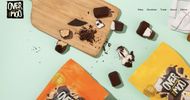
Over the Moo was a company vowing to take their lactose-intolerant consumers over the moon with their coconut milk-based ice cream. Despite it being an innovative idea, the Sharks did not seem to be pleased and let the brand go. Over the Moo worked on their strategies and capped the vegan and lactose intolerant market. Today the company is worth over $2 million USD.
18) MealEnders
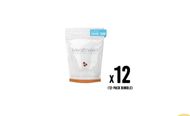
MealEnders was a unique idea that intended to solve the problem of weight management without prescription medicines. It is based on a smart design that signals to the brain that you have already eaten. It does so through lozenges that have a mix of flavours which causes tingling sensations and sends the said signal. The Sharks let this brand go based on the notion that customers might refrain from adopting this method owing to its novelty. Contrastingly, the product was received well with the audience and became a success.
17) Big Shake's Hot Chicken and Fish
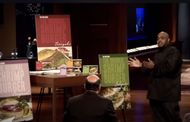
Owned by Chef Shawn Davis, Big Shake’s Hot Chicken and Fish is another example of a huge Shark Tank miss. They were a brand combining seafood and chicken with spicy flavors which the Sharks were not keen on investing in. They assumed scaleability would be a problem and found the idea to be unpredictable. But Big Shake found investments outside of the show and today, the brand is worth over 10 million dollars.
16) The Lip Bar
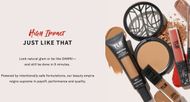
The Lip Bar is another brand worth over 10 million dollars. It was initially rejected on Shark Tank when founder Melissa Butler proposed the idea of vegan and cruelty-free lip products. The Sharks were hesitant as beauty products are a very niche market, very hard to tap into. But, Melissa Butler built on the popularity she received on the show and used it as marketing. She sought investment from outside sources and today has a million-dollar brand built on ethical principles.
15) Xero Shoes
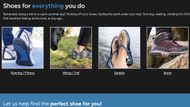
Xero Shoes is another unexpected success story from Shark Tank. It is centered around manufacturing lightweight footwear that provides an almost barefoot experience. The Sharks refused to invest in this company owing to high competition. In spite of letting the idea go, the owners took a risk, which paid off really well with their net worth reaching over 25 million dollars.
14) Proof Eyewear

Proof Eyewear was pitched by three brothers reviving around high-quality eyewear products made with eco-friendly products. With their passion for protecting the environment, the brothers wanted to launch a brand that could contribute to shifting to biodegradable products. Their brand was denied investment on Shark Tank as the Sharks had production-related concerns and thought acquiring raw materials could be a challenge. The brand is now valued at around 10 million USD.
13) CoatChex

CoatChex was a modern system that instead of using attendants for coat checks at events and parties, used technology. It made the entire process efficient and smooth. The Sharks on Shark Tank, did not quite believe in his pitch and assumed it to be unnecessary and irrelevant. The owner, Ryan Landau used smart marketing and pitched the product to high-end places. CoatChex ended up becoming a successful brand.
12) Voyage Air Guitar
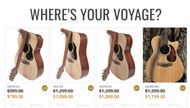
Voyage Air Guitar was another unique idea turned down by the judges which is now a success. The idea was to have a foldable guitar that would allow easy transportation for musicians who travel often. It was a new and practical concept but the judges on Shark Tank didn’t quite resonate with it. Today, products of Voyage Air Guitar have become a must for musicians. They have captured a large market and are worth more than 10 million dollars.
11) Coffee Meets Bagel

Coffee Meets Bagel was another interesting pitch on Shark Tank. Contrary to what the name suggests, Coffee Meets Bagel was a dating app. The algorithm relied on matching people based on their mutual interests while being very cautious about the security of the users. The judges on Shark Tank did not believe in the project due to competition from big tech giants like Tinder and Bumble. Today the company is worth a whopping 100 million dollars and continues to grow every day.
10) PetPlate

PetPlate founded by Renaldo Webb was a company aiming to provide chef-made meals for dogs. The meals would be nutritious and very healthy for the pets. The Sharks on Shark Tank were worried about the scalability and production. However, the company hopped on the rising trend of pet owners and started providing personalized diet plans for their pets. This ended up making them a 100 million-dollar company.
9) Simple Habit
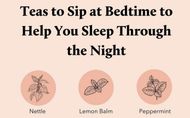
Simple Habit was a mediation and wellness app pitched by Yunha Kim. The app aims to help people improve their mental health through small exercises. These exercises usually reduce stress, help people focus, and enhance their sleep quality. The pitch was made at a time when wellness apps were quite popular so the sharks rejected it on the basis of high competition. However, the minimalist appeal of the app captivated a niche audience and made it a 100 million-dollar app.
8) Hammer & Nails

Hammer & Nails was a brand aiming to move away from stereotypical notions. It was an idea of a male grooming salon, providing a range of services, from spas to manicures. The Sharks assumed that scalability would be an issue and rejected the offer. However, the brand received outside investment and is running a successful chain of salons, valued at 20 million dollars.
7) Kodiak Cakes
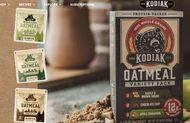
Kodiak Cakes was a pancake mix with protein, whole grains, and organic material. Their aim was to provide a traditional pancake taste but healthier. The Sharks refused investment owing to competition. Kodiak Cakes started partnering up with grocery stores and eventually became a household name. They are valued at over a billion dollars, boasting a massive success story.
6) Copa Di Vino
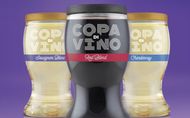
Copa Di Vino was an innovative concept that sold premium wine in portable and recyclable cups. Their product was aimed to cater to people on the go. They provided the experience of drinking premium wine but in a hassle-free manner. The Sharks on Shark Tank were skeptical and assumed it wouldn’t appeal to the consumers much because wine drinking is an experience with its traditional wine glass. But the brand gained momentum. The easy access captured the working sector and made it a 40 million-dollar brand.
5) Rocketbook
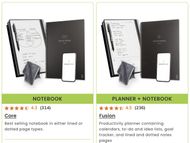
Rocketbook was a revolutionary idea that despite the rejection on Shark Tank went on to become a 200 million concept. The product was a smart notebook that could be used again and again by transferring the notes to a digital medium. It was a very innovative concept that appealed to the environment-conscious sector.
4) The Bouqs Co.

The Bouqs Co. was a unique idea that aimed to deliver flowers directly from farms to houses. They aimed to eliminate flower shops that store days-old stock that is mostly wasted. Another goal was to remove the middlemen and make flower delivery a direct process. On Shark Tank, he Sharks didn’t invest thinking it wouldn’t be able to compete with the traditional flower shops. Instead, Bouqs Co. gained immediate success when they integrated with online platforms. With a simple app, they allowed their customers to personalize their flower arrangements which appealed highly to the consumers. They are now valued at 100 million US dollars.
3) BedJet

BedJet aims to provide a quality sleeping experience. They made technology through which one could moderate the bed design, temperature, and a lot of other features. The Sharks on Shark Tank refused investments because they believed the high price of the product wouldn’t sit well with the consumers. But BedJet started marketing products as luxury goods and was an immediate success. They are worth 50 million US dollars now.
2) Cellhelmet
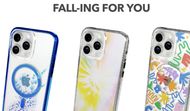
Cellhelmet was a product that made protective phone cases. They marketed with their products with a lifetime warranty but their major selling point was the policy that if a phone got damaged while using a cell helmet, the company would replace it. The Sharks didn’t sit well with the logistics and claims of the company and resorted to not investing. But appearing on Shark Tank proved to be an advantage for them as their sales increased. Now, without the help of the Sharks, the company is valued at 20 million dollars.
1) Ring Doorbell

Ranked at number 1, Ring is the biggest success story that proved everyone wrong. The founder Jamie Siminoff went on Shark Tank with a product that consisted of a smart doorbell that was equipped with a camera. It also included features that could allow the homeowners to interact with visitors, even remotely. Siminoff worked on enhancing the system and integrated them all into an entire home monitoring system. Today, Ring is valued at 1.1 billion US Dollars.
Love movies? Try our Box Office Game and Movie Grid Game to test your film knowledge and have some fun!
Your perspective matters!
Start the conversation
